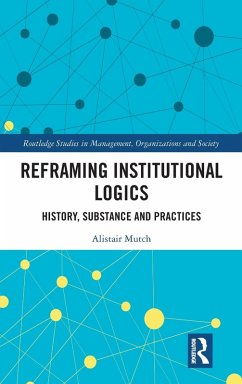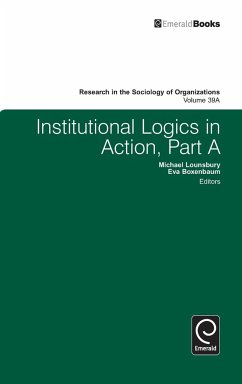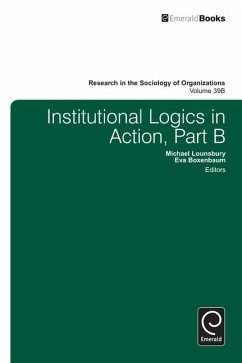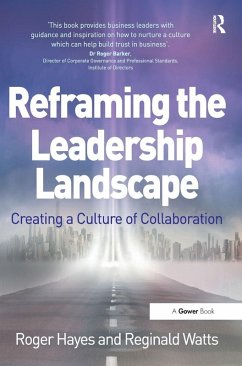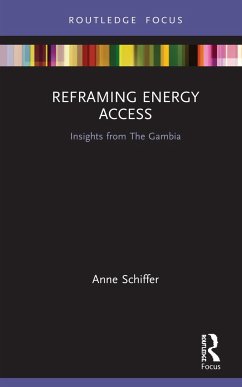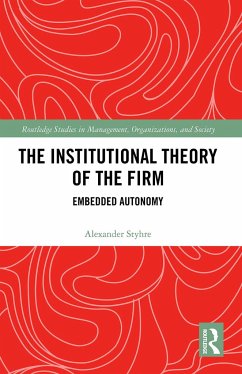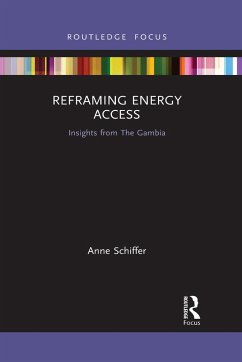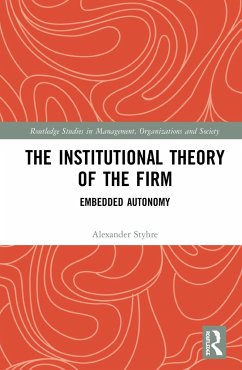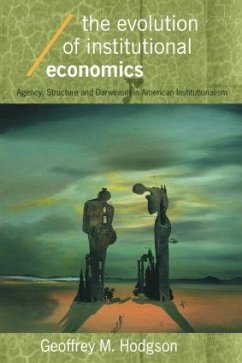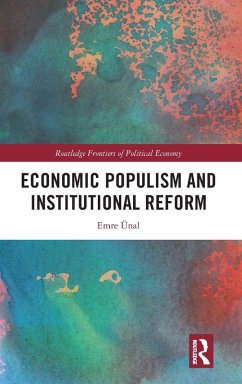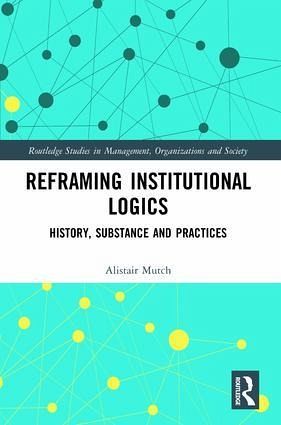
Reframing Institutional Logics
Substance, Practice and History
Versandkostenfrei!
Versandfertig in 1-2 Wochen
59,99 €
inkl. MwSt.
Weitere Ausgaben:

PAYBACK Punkte
30 °P sammeln!
How are we to characterise the context in which organisations operate? The notion that organisational activity is shaped by institutional logics has been influential but it presents a number of problems. The criteria by which institutions are identified, the conflation of institutions with organisations, the enduring nature of those institutions and an exaggerated focus on change are all concerns that existing perspectives do not tackle adequately. This book uses the resources of historical work to suggest new ways of looking at institutional logics. It builds on the work of Roger Friedland wh...
How are we to characterise the context in which organisations operate? The notion that organisational activity is shaped by institutional logics has been influential but it presents a number of problems. The criteria by which institutions are identified, the conflation of institutions with organisations, the enduring nature of those institutions and an exaggerated focus on change are all concerns that existing perspectives do not tackle adequately. This book uses the resources of historical work to suggest new ways of looking at institutional logics. It builds on the work of Roger Friedland who has conceived of institutional logics being animated by adherence to a core substance that is immanent in practices. Development of this idea in the context of organisation theory is supported by ideas drawn from the work of the social theorist Margaret Archer and the broader resources of the philosophical tradition of critical realism. Institutions are seen to emerge over time from the embodied relations of humans to each other and to the natural world on which they depend for material existence. Once emergent, institutions develop their own logics and endure to form the context in which agents are involuntarily placed and that conditions their activity. The approach adopted offers resources to 'bring society back in' to the study of organisations. The book will appeal to graduate students who are engaging with institutional theory in their research. It will also be of interest to scholars of institutional theory, of the history of organisations and those seeking to apply ideas from critical realism to their research.





